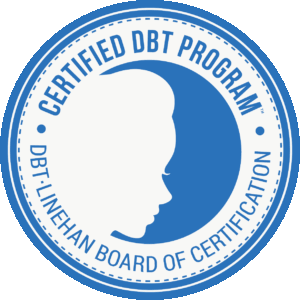In the realm of mental health, few topics are as delicate and critical as suicide prevention and coping with suicidal thoughts. From a therapist’s lens, navigating this terrain requires empathy, understanding, and a nuanced approach. In this blog series, we delve into the multifaceted aspects of suicide prevention and offer insights from a therapist’s perspective. We’ll explore the warning signs, effective coping strategies, and the importance of seeking professional help. With a compassionate and informed approach, we aim to shed light on this often stigmatized topic, providing support and guidance for individuals grappling with suicidal ideation and those supporting them.
Recognizing the Signs: Understanding Suicidal Ideation
Recognizing the signs of suicidal ideation is crucial for early intervention. It involves understanding the behavioral, emotional, and psychological cues that may indicate someone is at risk. Signs may vary from withdrawal and mood swings to explicit verbal cues or giving away possessions. Education on these signs empowers individuals to intervene and seek help for themselves or others. Additionally, understanding the underlying factors contributing to suicidal thoughts, such as mental illness, trauma, or substance abuse, aids in effective intervention. By fostering open dialogue and education, communities can create supportive environments where individuals feel safe to discuss their struggles without fear of judgment or stigma.
The Role of Therapy: Strategies for Suicide Prevention
In the realm of suicide prevention, therapy plays a pivotal role in providing individuals with the tools and support they need to navigate their struggles and find hope. Here, we explore key strategies employed by therapists in preventing suicide and promoting mental well-being.

Cognitive-Behavioral Therapy (CBT)
CBT focuses on identifying and challenging negative thought patterns and behaviors that contribute to suicidal ideation. By teaching individuals to recognize and reframe distorted thinking, CBT equips them with effective coping mechanisms to manage crises and develop healthier responses to stressors. Through structured sessions and homework assignments, CBT empowers individuals to take control of their thoughts and emotions, reducing the risk of suicidal behaviors.
Dialectical Behavior Therapy (DBT)
DBT combines elements of cognitive-behavioral techniques with mindfulness practices, emphasizing acceptance and change. Through skills training in emotion regulation, distress tolerance, and interpersonal effectiveness, DBT equips individuals with the tools to navigate intense emotions and interpersonal conflicts without resorting to self-harm or suicidal behaviors. By fostering a dialectical approach to balancing acceptance and change, DBT promotes resilience and emotional stability.
Psychodynamic Therapy
Psychodynamic therapy explores underlying unconscious conflicts and patterns that contribute to suicidal thoughts and behaviors. By delving into past experiences and relationships, individuals gain insight into the root causes of their distress, enabling them to make meaningful connections between past and present experiences. Through the therapeutic relationship, individuals develop greater self-awareness, self-compassion, and a deeper understanding of their emotions, leading to lasting changes in behavior and coping mechanisms.
Integrated Approaches
Many therapists utilize an integrated approach, combining elements of various therapeutic modalities to meet the unique needs of each individual. By drawing from a diverse toolkit of techniques and interventions, therapists tailor treatment plans to address the specific challenges and strengths of their clients. Integrated approaches may incorporate elements of CBT, DBT, psychodynamic therapy, and other evidence-based practices, providing a comprehensive and personalized approach to suicide prevention and mental health promotion.
Building Resilience: Coping Mechanisms for Suicidal Thoughts
Building resilience against suicidal thoughts involves developing adaptive coping mechanisms to navigate life’s challenges. This process encompasses various strategies, including developing a strong support network, engaging in self-care practices, and cultivating healthy coping skills. Connecting with supportive friends, family, or mental health professionals can provide emotional validation and practical assistance during difficult times. Additionally, practicing self-care activities such as exercise, mindfulness, and creative expression can promote emotional regulation and stress reduction. Learning effective coping skills, such as problem-solving, emotion regulation, and assertive communication, empowers individuals to manage triggers and setbacks effectively. By actively engaging in these resilience-building strategies, individuals can strengthen their mental well-being and reduce the risk of succumbing to suicidal thoughts.
Breaking the Stigma: Destigmatizing Mental Health Conversations
Breaking the stigma surrounding mental health conversations is essential for creating a supportive environment where individuals feel comfortable seeking help. This involves challenging misconceptions and stereotypes about mental illness and advocating for open dialogue and acceptance. Education plays a crucial role in dispelling myths and fostering empathy and understanding towards those struggling with mental health issues. Additionally, sharing personal stories of recovery and resilience can humanize the experience of mental illness and inspire hope in others. Creating safe spaces for discussion, such as support groups or online forums, encourages individuals to share their experiences without fear of judgment or discrimination. By promoting empathy, compassion, and acceptance, communities can work towards eradicating the stigma associated with mental health and encouraging help-seeking behaviors.
Seeking Support: Resources for Those in Crisis
Seeking support during a mental health crisis is vital for individuals experiencing suicidal thoughts or behaviors. Numerous resources are available, including hotlines, crisis intervention services, and mental health professionals. National and local hotlines provide immediate support and guidance to individuals in distress, offering a confidential and nonjudgmental space to talk about their feelings. Crisis intervention services may involve mobile crisis teams or emergency departments trained to assess and provide appropriate interventions for individuals in crisis. Mental health professionals, including therapists, counselors, and psychiatrists, offer ongoing support and treatment tailored to each individual’s needs. Additionally, online resources, support groups, and peer-led initiatives provide valuable peer support and information for those navigating mental health challenges. By accessing these resources, individuals can receive the support and assistance they need to navigate their crisis and access appropriate care.
Navigating Triggers: Identifying and Managing Stressors
Navigating triggers involves identifying and managing stressors that exacerbate suicidal thoughts or behaviors. Triggers can vary widely and may include interpersonal conflicts, financial difficulties, or traumatic memories. By identifying common triggers and understanding their impact on mental well-being, individuals can develop proactive strategies to mitigate their effects. This may involve setting boundaries in relationships, practicing relaxation techniques, or seeking professional guidance to address underlying issues. Additionally, developing healthy coping mechanisms, such as mindfulness, journaling, or engaging in enjoyable activities, can provide a buffer against stressors. Building a toolbox of coping strategies empowers individuals to navigate challenging situations with resilience and reduce the risk of succumbing to suicidal thoughts. By proactively managing triggers and prioritizing self-care, individuals can cultivate a supportive environment conducive to mental well-being.
Beyond the Crisis: Long-Term Strategies for Mental Well-being
Beyond crisis intervention, adopting long-term strategies for mental well-being is essential for sustained recovery and resilience. This involves ongoing self-care practices, regular therapy or counseling sessions, and holistic approaches to mental health maintenance. Engaging in activities that promote physical health, such as exercise, balanced nutrition, and sufficient sleep, supports overall well-being and mood regulation. Moreover, prioritizing social connections and meaningful relationships fosters a sense of belonging and support. Regular therapy or counseling sessions provide a safe space to explore and address underlying issues contributing to mental health challenges. Additionally, incorporating mindfulness practices, such as meditation or yoga, promotes emotional regulation and stress reduction. By committing to long-term mental health maintenance, individuals can build resilience, enhance their quality of life, and reduce the risk of relapse into suicidal thoughts or behaviors.
Conclusion
Navigating the complex landscape of suicide prevention and coping with suicidal thoughts requires a multifaceted approach rooted in empathy, education, and support. By recognizing the signs, accessing therapy, building resilience, and breaking the stigma surrounding mental health, individuals can find hope and healing. Seeking support from resources like hotlines, crisis intervention services, and mental health professionals is crucial during times of crisis. Moreover, implementing long-term strategies for mental well-being, such as self-care practices and ongoing therapy, fosters resilience and promotes sustained recovery. Together, these efforts contribute to creating a community where individuals feel empowered to prioritize their mental health and seek help when needed. For support, contact DBT of South Jersey at 18566256550, located in Voorhees, New Jersey, USA.




